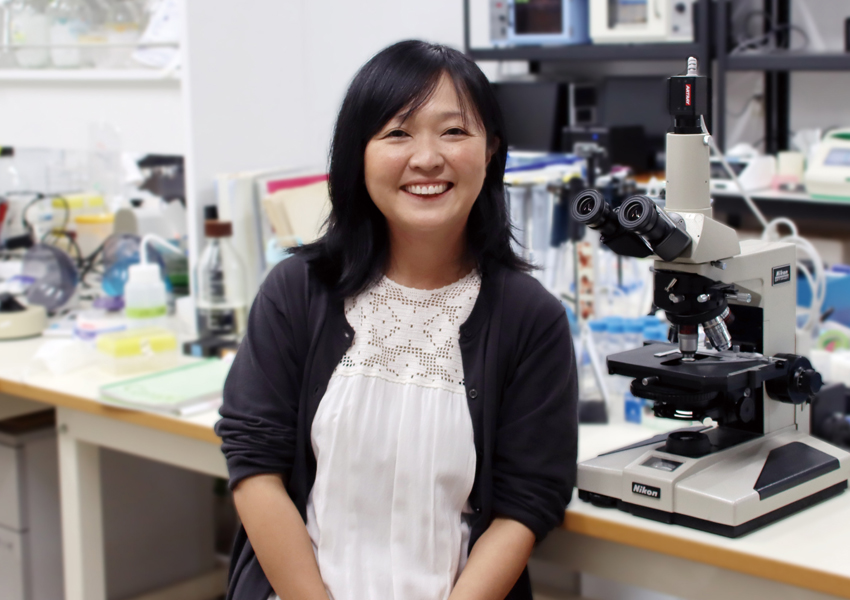Specializing in Bacteriology and Hygiene for wildlife conservation. Research interests include Hygiene and Nutritional Physiology.
Profile
Dr. Sayaka Tsuchida graduated from Kyoto Prefectural University’s Doctoral Course in the Graduate School of Life and Environmental Sciences, Division of Applied Life Sciences, and holds a Doctor of Agriculture (equivalent to Ph.D.). While still a student, she became a trainee at the Microbe Division / Japan Collection of Microorganisms (JCM) in RIKEN-BRC, and later became an academic researcher and a specially appointed lecturer at Kyoto Prefectural University before arriving at Chubu University in 2018, where she now works as a Senior Assistant Professor in the College of Bioscience and Biotechnology.
Born in Ehime prefecture, Dr. Tsuchida spent her childhood collecting insects and fishing with her siblings. Her favorite food is spicy food, and her hobby is cooking. She uses spices from all over the world and sometimes arranges them by combining them with Japanese cuisine.
Close up with Dr. Tsuchida!
Research Introduction
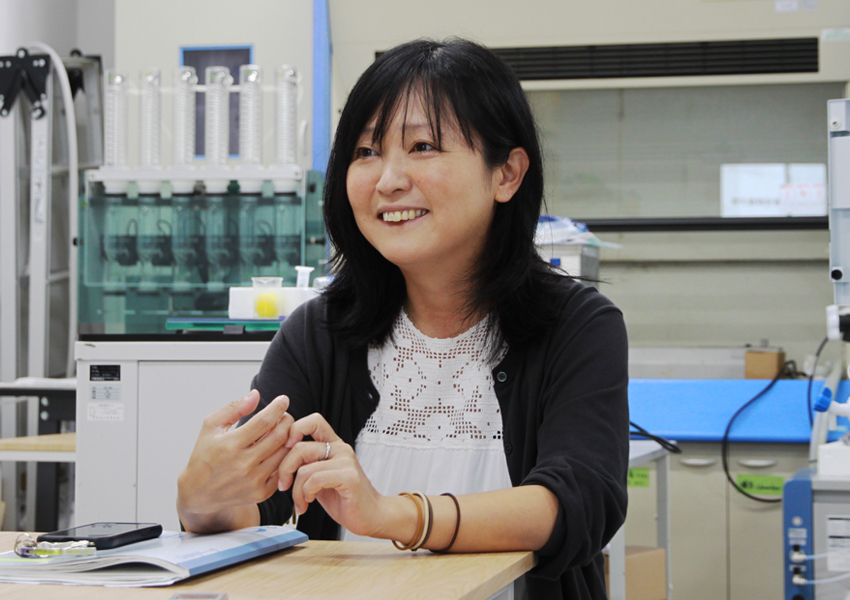
The intestinal bacteria of animals evolve together with the host and become a part of the body that is essential for survival, such as digesting food and activating immunity. Wild animals also have their own unique “symbiotic intestinal bacteria” that break down, detoxify, and digest anti-nutrients (substances that prevent the digestion and absorption of nutrients) and toxins in wild foods that would otherwise upset the stomachs of us humans. Focusing on the useful properties of such intestinal bacteria of wild animals, we are conducting research on intestinal bacteria that are useful for the conservation of endangered animals, such as the Japanese rock ptarmigan. We are developing the probiotics for captive Japanese rock ptarmigans to create “re-introduction ready animals.” This research is also expected to contribute to the health promotion of related livestock species and pets.
The study of “intestinal bacteria of wild animals” is a rare and new field in Microbiology. The process of devising and carrying out research on my own is very exciting, and the joy of obtaining new results is extremely great.
How did you start your research?
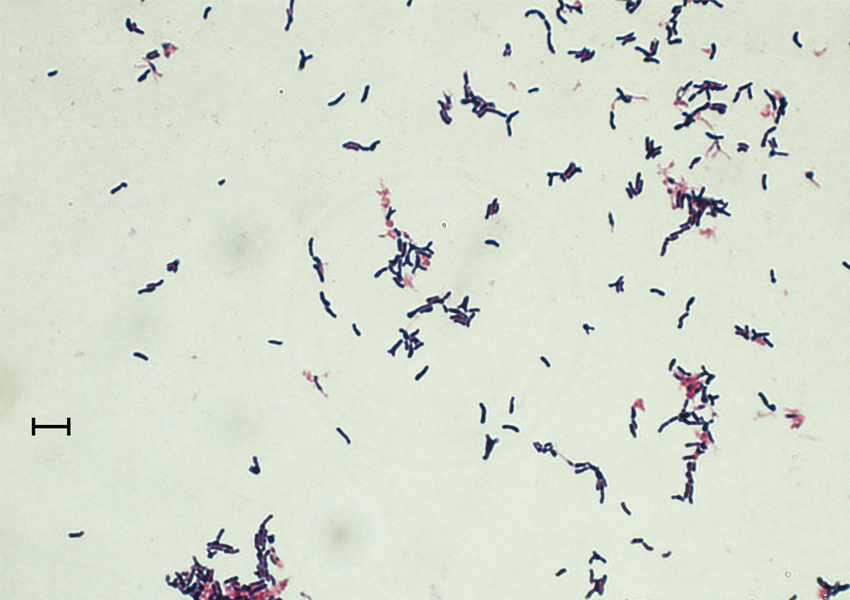
When I was an undergraduate student, I studied the intestinal bacteria of chinchillas, which were raised in a laboratory as experimental animals. At the Microbe Division / JCM in RIKEN-BRC, I learned about molecular biology and genetic analysis, which are different from techniques such as culture methods that were used at my university. I thought that I would not be able to understand it without researching “wild animals.” In the doctoral program, Professor Kazunari Ushida (currently of the Department of Environmental Biology at Chubu University), was researching “intestinal bacteria of wild animals” at Kyoto Prefectural University, so I moved to the laboratory and continued my research there. Even after completing my doctoral course, I continue my research with the feeling that “if I do a little more research, I may be able to find out where it goes.”
Presented the Sanae Ito Award for her research in hygiene and nutritional physiology for the conservation of wildlife.
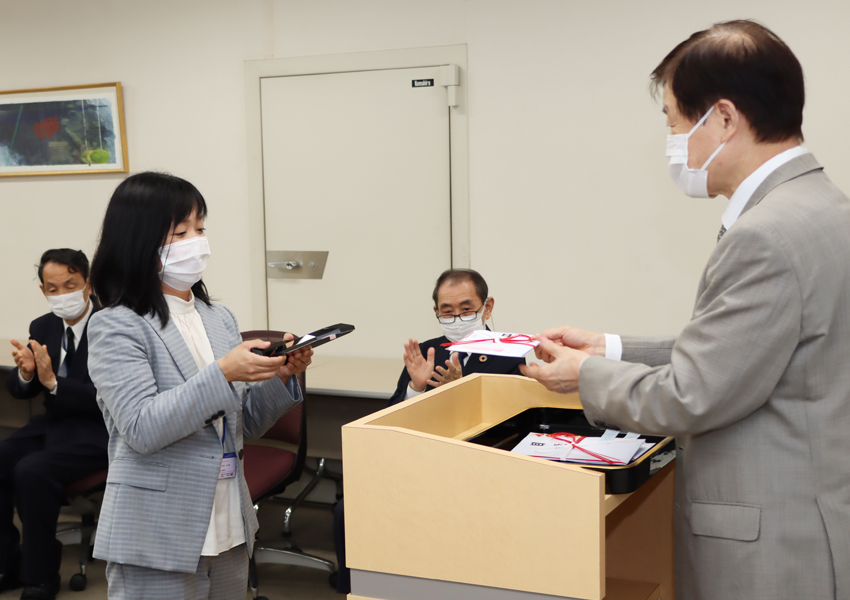
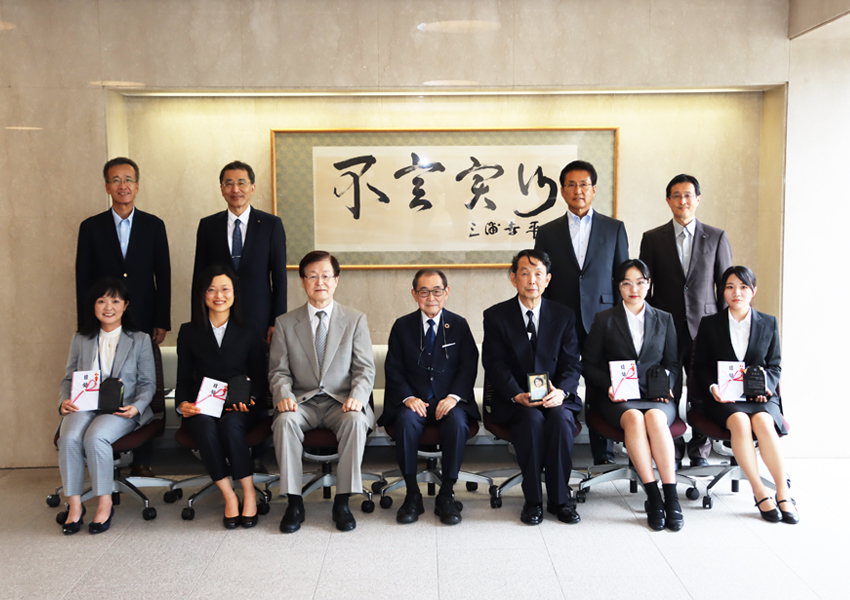
I was very happy to receive the Sanae Ito Award in July 2021. My research is not a field that sees much immediate recognition. I go out into the field to observe animals during sampling, but after collecting fecal samples, I proceed with very humble work in the laboratory. Therefore, I was very grateful to have the results of my steady efforts recognized.
Student Life
When I was in my third and fourth years as an undergraduate student, I belonged to a laboratory that researched experimental animals, and I was in the laboratory almost every day after class. The university had only a small number of students, so I got along well with everyone, and I really enjoyed talking with my friends and seniors in the lab. When I was debating whether to go on to graduate school or not, I attended a lecture by with Professor Yoshimi Benno, who was then the head of the RIKEN Microbial Materials Development Office (currently a specially invited researcher at the RIKEN Center for Innovation Promotion). I became interested in his research methods. With the encouragement of my friends, I was able to talk with Professor Benno at a social gathering after the lecture, and this led me to enter graduate school. During my master course study, I became a trainee in JCM Laboratory, where I spent two years. With no other students in the laboratory, I was surrounded by researchers only, but I was exposed to the latest research and research methods. In the doctoral program, I went on to Kyoto Prefectural University and conducted full-scale research on the intestinal bacteria of wild animals. Up until then, I had been working with experimental animals, so I had only been doing research in the laboratory. Since entering the doctoral course, I have travelled to mountainous areas in Japan and abroad and to forests in Africa to collect fecal samples from wild animals. I also study the intestinal bacteria of captive-rare animals such as gorillas, ptarmigan, and pygmy slow lorises, so I also go to the zoo for sampling.
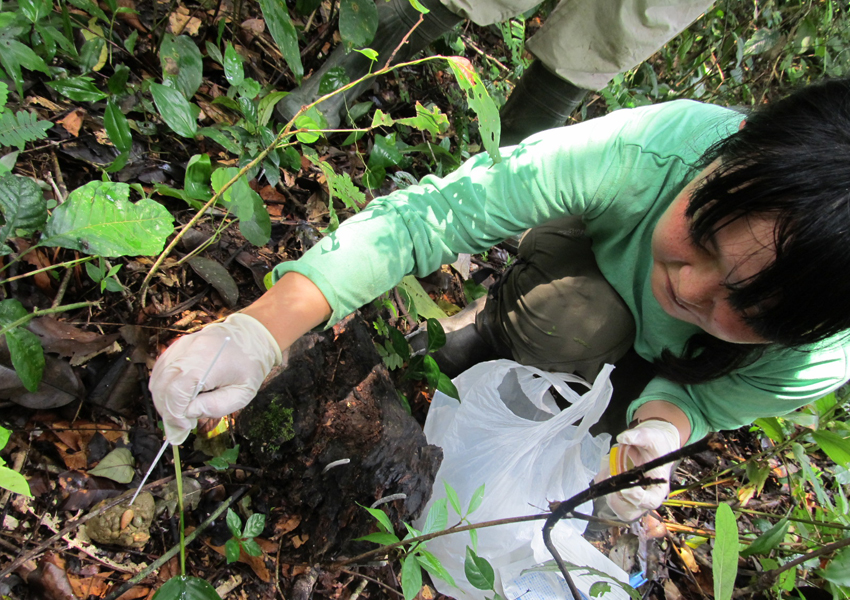
Collecting fecal samples from wild western lowland gorillas in Moukalaba-Doudou National Park, located in Gabon, Central Africa 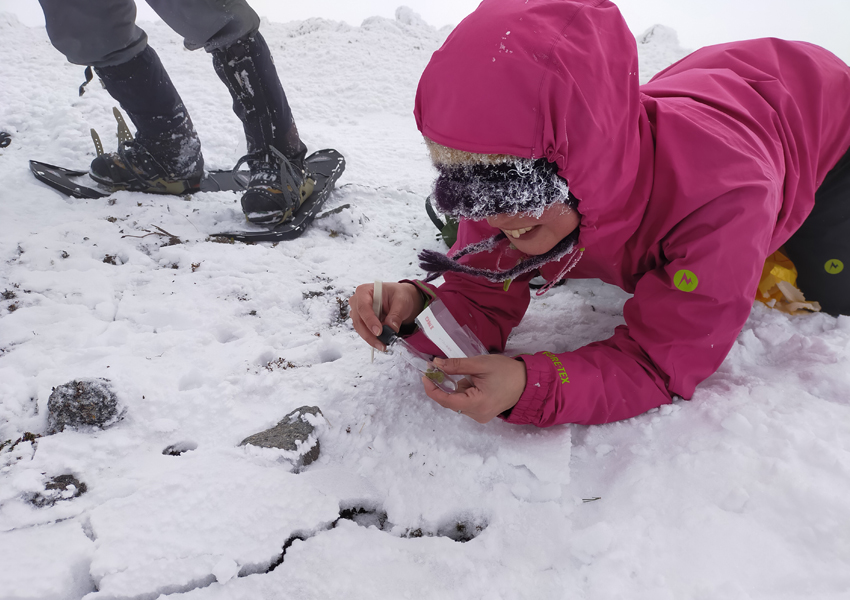
Collecting ptarmigan fecal samples during midwinter on Norikura-dake mountain
Message
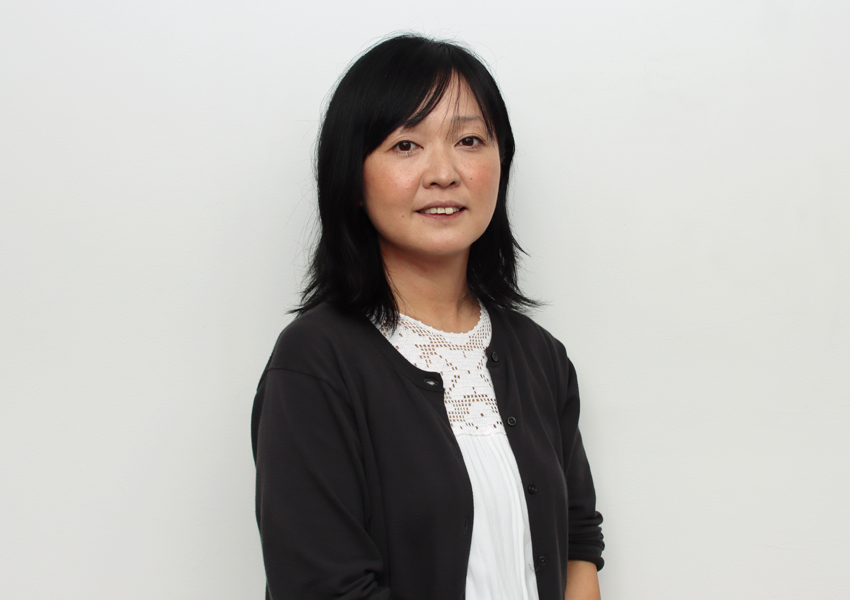
Life is very long, so I think it’s important to find something you can continue for the long-term. It is not just about what you like, but also what you don’t dislike. It is difficult to find what you “like,” but it is easy to find something you “don’t dislike,” and I think you can make an effort to grow. When you are a student, you should honestly ask questions and discuss not only the content of your research, but also other things, even if they are trivial. It would be a waste not to have discussions in a place where experts from various fields are gathered. The knowledge you gain will be a treasure for the future. Please feel free to visit our laboratory at any time.


